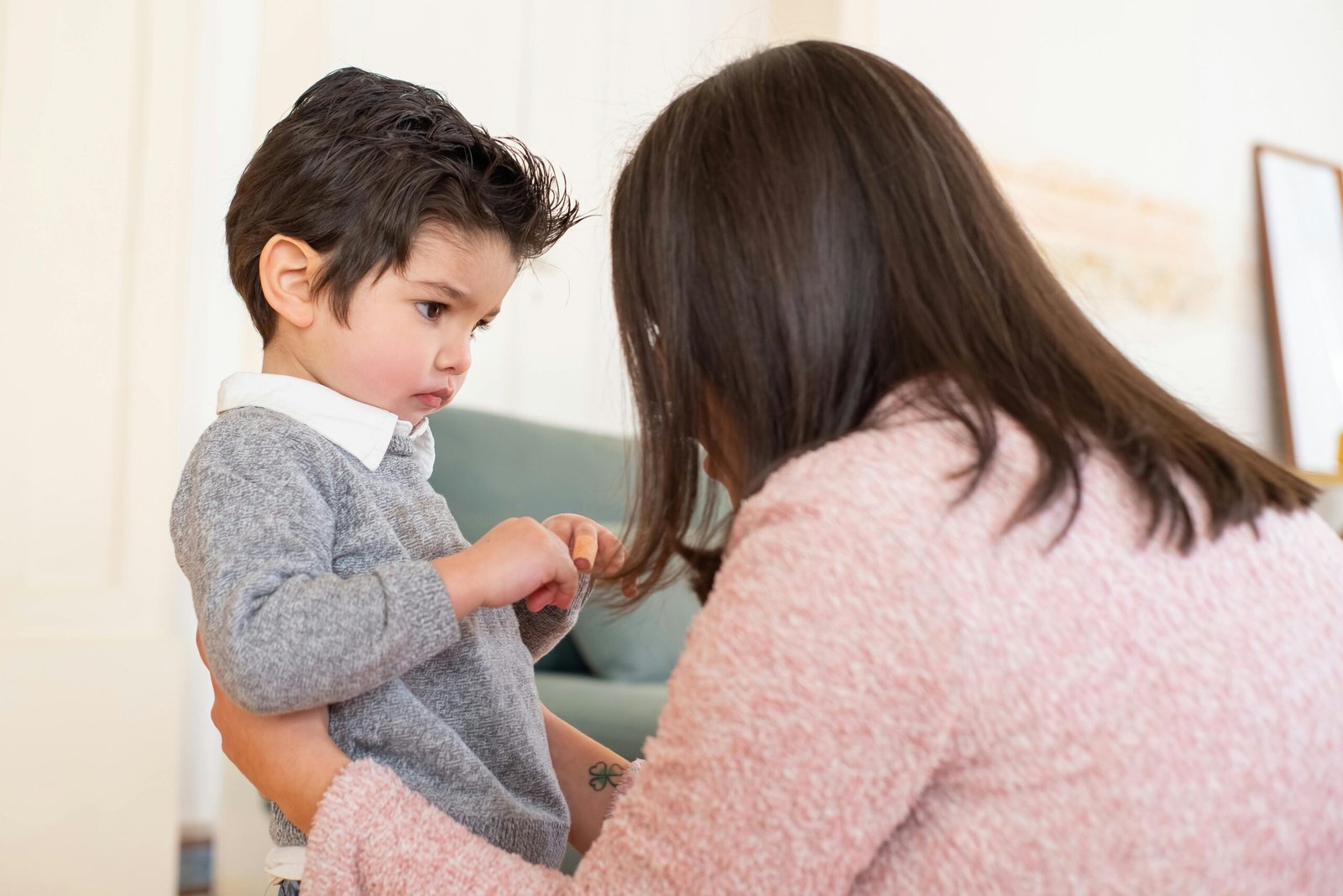Every parent eagerly awaits the day their toddler starts talking. Those first words are like music to the ears. But what if your little chatterbox isn’t quite so chatty? If your toddler is taking longer than expected to start speaking, you might be dealing with speech delay in toddlers. It’s a common concern, and the good news is, in many cases, it’s completely manageable with the right approach. Let’s break it down in a simple, relaxed way and explore what causes speech delay in toddlers and what you can do about it.
What Is Speech Delay in Toddlers?

Speech delay in toddlers means that a child isn’t developing speech and language skills at the expected rate. Every child is unique, and some simply take their time. But there are general milestones that help determine if a delay might be present. By the age of 12 months, babies should be babbling, imitating sounds, and responding to their name. By 18 months, they should have a few simple words, and by two years old, they should be stringing two words together. If these milestones aren’t being met, it may signal speech delay in toddlers.
Common Causes of Speech Delay in Toddlers
Hearing Problems and Speech Delay in Toddlers
One of the first things to check when dealing with speech delay in toddlers is their hearing. If a child has trouble hearing words clearly, they’ll struggle to mimic and learn them. Ear infections, which are common in young children, can sometimes cause temporary or even long-term hearing loss, affecting speech development.
Developmental and Neurological Conditions
Some toddlers experience speech delay due to underlying conditions like autism spectrum disorder (ASD) or cerebral palsy. In these cases, speech delay is usually accompanied by other developmental differences, such as difficulty with social interactions or motor skills. If you notice these signs alongside speech delay in toddlers, it’s a good idea to consult a specialist.
Oral-Motor Issues and Speech Delay in Toddlers
Sometimes, the issue isn’t with understanding words but with forming them. Oral-motor problems can make it difficult for toddlers to coordinate the tongue, lips, and jaw necessary for clear speech. If your toddler seems to struggle with making certain sounds or has difficulty with feeding, this could be a clue.
Lack of Social Interaction and Speech Delay in Toddlers
Speech thrives on interaction. If toddlers aren’t spoken to frequently or don’t have opportunities to engage in conversation, their speech development may be delayed. Screens can sometimes replace real-life interactions, and while educational videos are great, they can’t replace a back-and-forth exchange with a real person.
Bilingual Environments and Speech Delay in Toddlers
Growing up in a bilingual household can sometimes cause what appears to be speech delay in toddlers. However, this is usually a temporary phase as the child sorts out two languages at once. In the long run, bilingual children often develop strong language skills, so there’s usually no need to worry.
How to Help a Toddler with Speech Delay
Talk, Talk, and Talk Some More
The more words your toddler hears, the more they’ll learn. Narrate your day, describe objects, and ask simple questions. Even if your toddler isn’t responding yet, they’re absorbing the words and meanings.
Read Together Every Day
Reading books together is a fantastic way to boost speech development. Choose books with bright pictures, simple words, and repetition. Point to pictures, name objects, and let your toddler try to repeat words back to you.
Play Interactive Games to Encourage Speech
Games like peekaboo, pretend play, and singing nursery rhymes can encourage speech. When you make speaking fun, toddlers are more likely to engage and experiment with sounds and words.
Use Simple and Clear Speech
Speak in short, simple sentences and emphasize key words. Instead of saying, “Do you want to go to the park after lunch?” try “Park now?” This helps toddlers pick up on the most important parts of speech without feeling overwhelmed.
Limit Screen Time
Too much screen time can reduce opportunities for real-world conversations. Try to balance any screen exposure with plenty of face-to-face talking and playing.
Encourage Gestures and Sign Language
Sometimes, using hand signals or baby sign language can bridge the gap between understanding and speaking. Simple gestures like waving for “bye-bye” or pointing can help toddlers feel more confident in communicating.
Consider Speech Therapy
If speech delay in toddlers is significant or persists beyond age two, consulting a speech therapist can be incredibly helpful. Therapists use engaging techniques to help toddlers develop their speech skills in a natural, enjoyable way.
When to Seek Professional Help
While many late talkers catch up on their own, there are times when professional help is the best option. If your toddler isn’t babbling by 12 months, has very limited vocabulary by 24 months, struggles to understand simple instructions, or loses previously learned words, a speech evaluation is a good idea. Early intervention can make a huge difference in overcoming speech delay in toddlers.
Every Child Develops at Their Own Pace

Speech delay in toddlers can feel concerning, but in many cases, it’s just a variation of normal development. Some kids are simply late bloomers. By creating a language-rich environment, engaging in conversation, and seeking help if needed, you’re giving your toddler the best chance to catch up and thrive. Keep talking, keep playing, and remember—every child finds their voice in their own time!
Frequently Asked Questions: Speech Delay in Toddlers: Causes and Solutions
1. Is it normal for toddlers to talk late, or should I be worried?
It depends! Some kids naturally take their time before they start chatting away, while others pick up words early. There’s a wide range of what’s considered “normal.” If your toddler is around two and still only saying a couple of words or mostly relying on gestures, it’s worth keeping an eye on. But if they understand what you’re saying, follow instructions, and try to communicate in their own way (even if it’s not with words yet), that’s a good sign! Some late talkers just need a little extra time, while others might need some support. It never hurts to check in with a professional for peace of mind.
2. Can being bilingual cause speech delay?
Nope! It’s a common myth, but learning two languages doesn’t delay speech—it just means your child is sorting through more vocabulary. Some bilingual toddlers might take a little longer to start speaking because they’re figuring out which words belong to which language, but in the long run, bilingualism is a huge advantage. They might mix words from both languages in the beginning, but that’s totally normal. If your child isn’t talking much in either language, though, it’s still worth looking into whether there’s an underlying delay.
3. How do I encourage my child to talk without making it feel like a chore?
Turn talking into a game! Kids learn best when they’re having fun, so make silly noises, sing songs, and play pretend. Instead of asking direct questions all the time (“What’s this?” “Say ‘dog’!”), try making playful mistakes like calling a banana a shoe and waiting for their reaction. Use animated expressions and exaggerate your words to keep things exciting. And most importantly, give them time to respond—sometimes a toddler just needs an extra few seconds to get their thoughts out. The more pressure-free the environment, the more likely they are to start chatting.
4. Could my toddler just be shy, or is their speech delay something more?
Shy kids might take a while to warm up in social settings, but they usually still talk at home with familiar people. If your toddler is quiet around others but chatty with you, their personality might just be on the reserved side. A true speech delay is different—it’s when a child struggles to communicate, even in comfortable settings. If your child isn’t talking much to anyone, not even you, or if they seem frustrated when trying to express themselves, that’s a sign to look deeper.
5. Does how much I talk to my toddler really make a difference?
Absolutely! Think of language like a muscle—kids need to hear words constantly to build their own speaking skills. The more you talk to them, the more words they absorb. But this doesn’t mean bombarding them with a non-stop monologue. Instead, make conversation interactive. If they point to a cat, you can say, “Yes! A cat! It’s soft. Look, it’s licking its paw!” When they make a sound, respond as if they’re talking to encourage more. It’s not just about hearing words—it’s about seeing language in action and feeling like a participant.
6. Should I wait and see if my child starts talking on their own, or do I need to take action now?
It’s tempting to just wait it out, especially if people reassure you with, “Oh, so-and-so didn’t talk until they were three, and now you can’t get them to stop!” While that’s true for some kids, early intervention can be a game-changer for others. If your gut tells you something is off, trust it. The earlier you address a speech delay, the easier it is to help your child catch up. And even if everything turns out fine, you’ll have peace of mind knowing you took the right steps.
7. If my toddler isn’t talking much, does that mean they’ll struggle in school later?
Not necessarily! Many late talkers go on to do just fine in school, especially if they get the support they need early on. But strong language skills are important for things like following instructions, making friends, and expressing needs, so it’s worth giving them a boost now. The good news is that kids’ brains are super adaptable. With a little help—whether it’s speech therapy, more interactive play, or just extra talking time at home—most children catch up and thrive when they start school.
